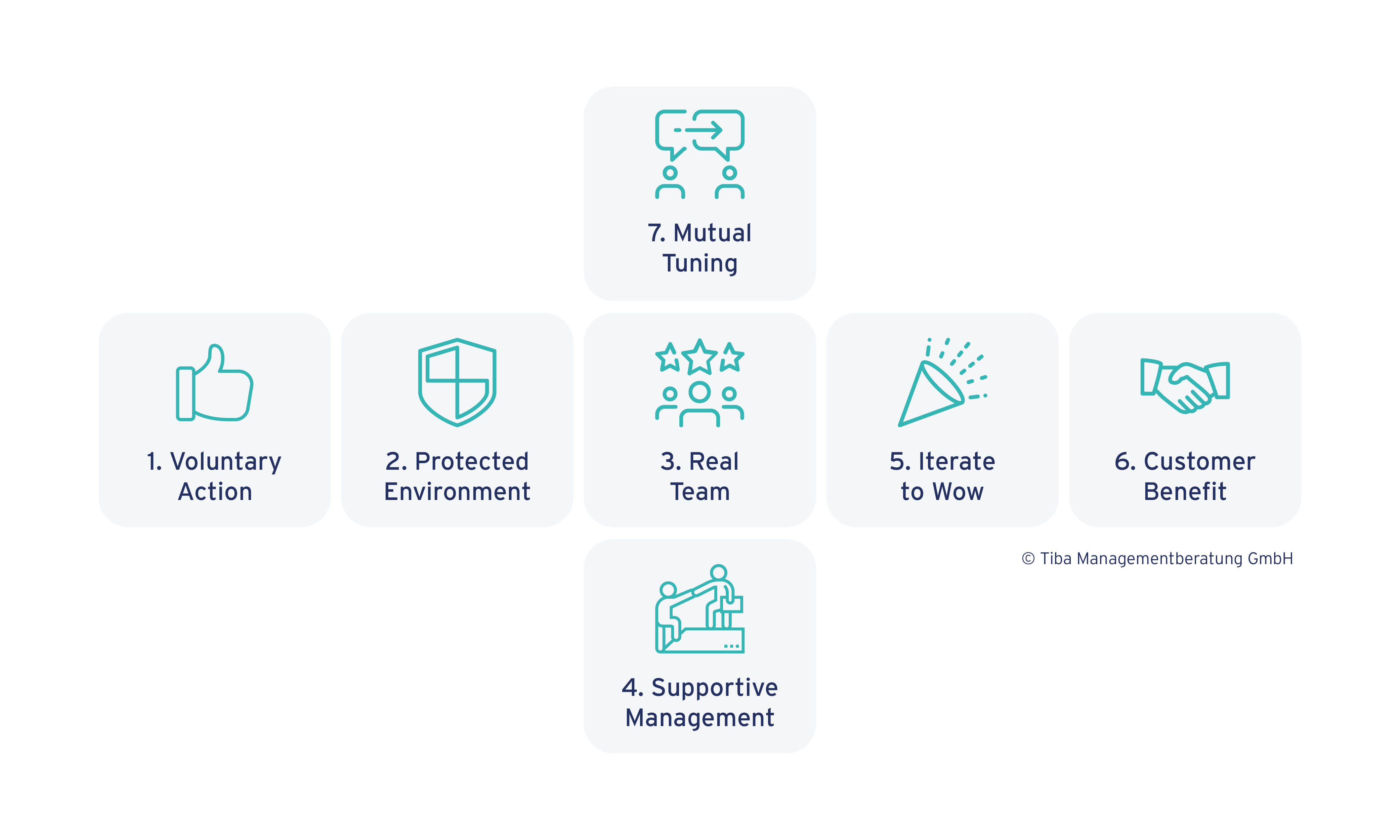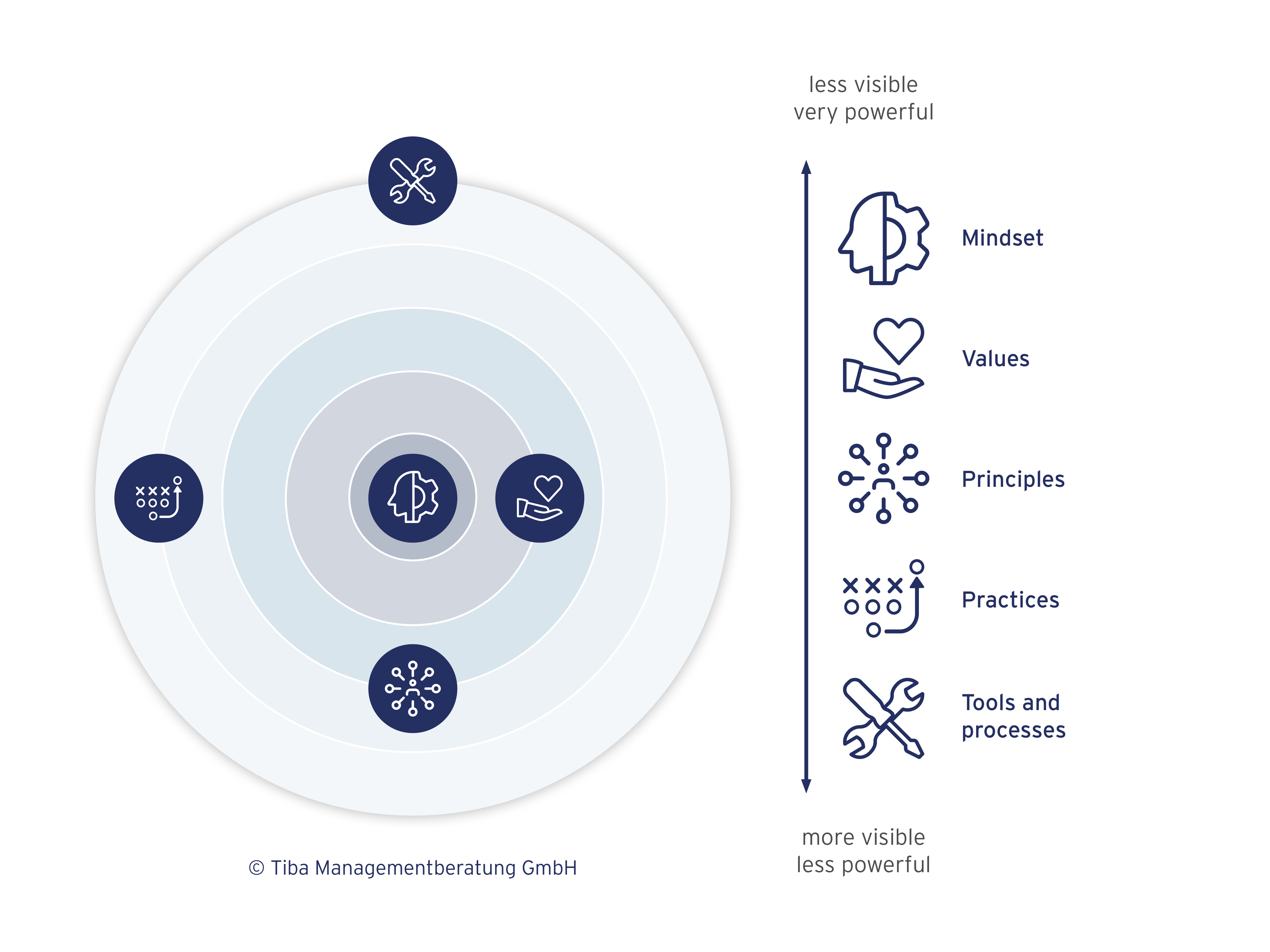Agility as a Success Factor in a Complex World
In times characterized by constant change and increasing complexity, we recognize that agility is more than just a way of working - it is a critical success factor. Companies need to quickly adapt to changing conditions, increase efficiency, and improve overall performance. By embedding agile values and principles, a lasting culture of flexibility, learning, and innovation is fostered.
Increased Speed
Agile methods empower companies to increase their responsiveness to market demands. By decentralizing decision-making processes, companies can react more quickly to changes and swiftly adjust their performance.
Enhanced Customer Focus
Agile practices place the customer at the center of product development. By regularly interacting with customers and incorporating their feedback into the development process, products are created that are better aligned with market needs and therefore more successful.
Motivated Employees
Agile principles promote a culture of accountability, commitment, and collaboration. Teams that work in a self-organized manner and have direct influence on project proceedings demonstrate a higher level of satisfaction and motivation.
Increased Innovation Leadership
By encouraging experimentation and accepting failure as part of the learning process, agile methods create a fertile ground for innovation. Teams are encouraged to develop creative solutions and explore new paths.
Improved Product Quality
Continuous iteration and feedback loops within agile processes lead to a constant improvement in product quality. Early and regular testing, as well as adjustments, quickly identify and rectify errors, thus enhancing the overall quality of the products.
Increased Speed
Agile methods empower companies to increase their responsiveness to market demands. By decentralizing decision-making processes, companies can react more quickly to changes and swiftly adjust their performance.
Enhanced Customer Focus
Agile practices place the customer at the center of product development. By regularly interacting with customers and incorporating their feedback into the development process, products are created that are better aligned with market needs and therefore more successful.
Motivated Employees
Agile principles promote a culture of accountability, commitment, and collaboration. Teams that work in a self-organized manner and have direct influence on project proceedings demonstrate a higher level of satisfaction and motivation.
Increased Innovation Leadership
By encouraging experimentation and accepting failure as part of the learning process, agile methods create a fertile ground for innovation. Teams are encouraged to develop creative solutions and explore new paths.
Improved Product Quality
Continuous iteration and feedback loops within agile processes lead to a constant improvement in product quality. Early and regular testing, as well as adjustments, quickly identify and rectify errors, thus enhancing the overall quality of the products.
Increased Speed
Agile methods empower companies to increase their responsiveness to market demands. By decentralizing decision-making processes, companies can react more quickly to changes and swiftly adjust their performance.
Enhanced Customer Focus
Agile practices place the customer at the center of product development. By regularly interacting with customers and incorporating their feedback into the development process, products are created that are better aligned with market needs and therefore more successful.
Motivated Employees
Agile principles promote a culture of accountability, commitment, and collaboration. Teams that work in a self-organized manner and have direct influence on project proceedings demonstrate a higher level of satisfaction and motivation.
Increased Innovation Leadership
By encouraging experimentation and accepting failure as part of the learning process, agile methods create a fertile ground for innovation. Teams are encouraged to develop creative solutions and explore new paths.
Improved Product Quality
Continuous iteration and feedback loops within agile processes lead to a constant improvement in product quality. Early and regular testing, as well as adjustments, quickly identify and rectify errors, thus enhancing the overall quality of the products.




